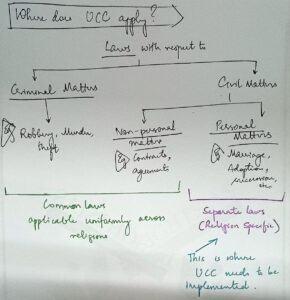Analyze the philosophies guiding the Arya Samaj and Brahmo Samaj as social reform platforms. What modernization of Indian philosophy efforts did they make?
Model Answer Introduction The 19th century in India was marked by the emergence of socio-religious reform movements that sought to challenge existing social norms, promote education, and address social injustices. Among these movements, the Arya Samaj, founded by Swami Dayananda Saraswati in 1875, pRead more
Model Answer
Introduction
The 19th century in India was marked by the emergence of socio-religious reform movements that sought to challenge existing social norms, promote education, and address social injustices. Among these movements, the Arya Samaj, founded by Swami Dayananda Saraswati in 1875, played a crucial role in shaping the socio-religious landscape of India. This reform movement focused on reviving Vedic principles and advocating for a more just and equitable society.
Rise and Growth of Socio-Religious Reform Movements
The 19th century was a period of significant transformation in India, influenced by British colonial rule, which had profound effects on the social, economic, and cultural fabric of the country. The spread of Western education and the Enlightenment ideals led to questioning of traditional religious practices, such as caste-based discrimination and child marriage.
Prominent socio-religious reform movements emerged during this time, including the Brahmo Samaj and the Prarthana Samaj. These movements shared common goals such as social justice, women’s empowerment, and the promotion of education. However, the Arya Samaj, founded by Swami Dayananda Saraswati, focused specifically on reviving the ancient Vedic traditions, which emphasized rationalism, equality, and the rejection of idol worship.
Arya Samaj’s Contribution to Social Reform
The Arya Samaj was established with the aim of challenging social evils like caste discrimination and untouchability. Swami Dayananda advocated for social equality and emphasized that the Vedas were a source of universal wisdom that promoted justice for all. One of the movement’s key principles was the promotion of women’s rights, including advocating for the abolition of child marriage and the promotion of widow remarriage.
The Arya Samaj also played a pivotal role in promoting Hindi as a national language and establishing educational institutions, which helped spread literacy and modern education across India. It was instrumental in the development of Hindi literature and the revival of Sanskrit education.
Conclusion
The Arya Samaj, along with other reform movements, significantly influenced Indian society by challenging age-old practices and advocating for social reform. While these movements faced opposition, their lasting impact can be seen in the promotion of rational thought, social equality, and the development of modern education in India. These reformers laid the foundation for a more progressive and egalitarian society, which contributed to India’s fight for independence and socio-political transformation.
See less

The 19th-century social reform movements, namely the Brahmo Samaj and Arya Samaj, emerged as significant catalysts for change in traditional Indian society. While the former was founded by Raja Ram Mohan Roy in 1828, the later one was founded by Swami Dayananda Saraswati in 1875 aiming to modernizeRead more
The 19th-century social reform movements, namely the Brahmo Samaj and Arya Samaj, emerged as significant catalysts for change in traditional Indian society. While the former was founded by Raja Ram Mohan Roy in 1828, the later one was founded by Swami Dayananda Saraswati in 1875 aiming to modernize Indian thought and practice by addressing social and religious issues.
Ideological Underpinnings of Brahmo Samaj and Arya Samaj
Ways in which they attempted to modernize Indian thought
Both Brahmo Samaj and Arya Samaj were pivotal in shaping modern Indian thought. They served as the intellectual vanguards of their time, challenging orthodox practices and paving the way for a more rational and equitable society. Their legacies continue to inform and inspire social reform movements in contemporary India.
See less